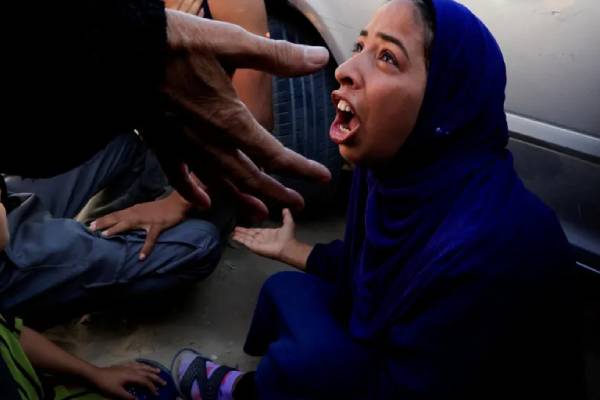At least 20 people have died during a deadly crush at an aid distribution centre in Khan Younis, southern Gaza, operated by the US- and Israel-backed Gaza Humanitarian Foundation (GHF), according to the organisation and local health officials.
In a statement, the GHF said 19 individuals were trampled to death and one was stabbed “amid a chaotic and dangerous surge” at the aid site. The foundation blamed the incident on individuals it described as “armed and affiliated with Hamas,” accusing them of deliberately inciting unrest.
However, the Hamas-run Government Media Office strongly rejected the claim, accusing the GHF of attempting to “cover up” what it called a “crime.” It alleged that private US security contractors hired by the GHF triggered the tragedy by closing gates while thousands of desperate civilians were queuing in narrow lanes to collect food, before firing tear gas canisters and live rounds into the crowd.
Nasser Hospital in Khan Younis confirmed it had received 21 bodies, reporting the deaths were caused by a combination of suffocation from tear gas and injuries sustained during the stampede.
The incident marks the first time the GHF has acknowledged fatalities at one of its aid distribution points since it began operating in Gaza in late May.
A disturbing video circulated on social media shows a witness atop a cart loaded with the bodies of six young boys and men at the hospital. The witness claims they were crushed between fences erected at the GHF site while waiting for aid.
The tragedy comes amid mounting international concern over the conduct of the GHF and the broader humanitarian situation in Gaza. According to the UN human rights office, at least 674 people have been killed in the vicinity of the GHF’s four sites in southern and central Gaza over the past six weeks. An additional 201 deaths have been recorded along aid convoy routes, many reportedly involving Israeli forces.
Until now, the GHF had denied responsibility for any deadly incidents near its centres, accusing the UN of relying on “false and misleading” data from Hamas-controlled sources.
The Israeli military last week admitted that civilians had been harmed in recent operations but said efforts were ongoing to minimise “possible friction between the population and the [Israeli] forces.”
The GHF operates within Israeli military-controlled zones and relies on private contractors for security and aid distribution. Its model has drawn sharp criticism, with the United Nations refusing to cooperate with the foundation and describing its operations as unethical.
As tensions grow, pressure is mounting on international actors to reassess the humanitarian delivery framework in Gaza, where the need remains critical and the risks to civilians continue to escalate.





